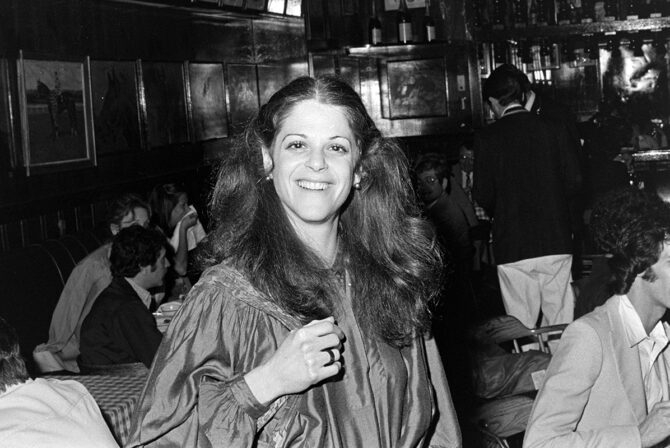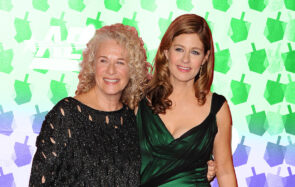About a year ago, my younger son, who was 4 years old at the time, found himself an imaginary friend.
Having become quite enamored of the Korean animated series “Miniforce”— think “Power Rangers” but with tiny woodland creatures instead of teenage humans — he decided that one of the characters, Tyranno Thunder, was not just a robot in a cartoon. To him, rather, Tyranno Thunder was a real living entity who could help with various tasks that needed to be done around the house.
On one December evening, I suggested to my children as we drove home that I could make a pizza for dinner. My then-4-year-old volunteered that “Tyranno Thunder can make us a pizza,” only to be told by his annoyed older brother (then 8), “Tyranno Thunder isn’t real!”
I quickly shushed my older son, telling him that his younger brother didn’t need to hear that. I can’t recall having ever had an imaginary friend myself, but I certainly believe in preserving the wonders of childhood wherever possible, and imaginary friends seemed to be an important part of that.
Later that evening, while scrolling through my social media feeds, the Tyranno Thunder conversation came back to me as I stumbled into some of the annual hand-wringing over the expectation that we Jewish parents make sure that our children don’t “ruin” Santa Claus for their gentile classmates.
Naturally, I’m sympathetic to the fatigue that comes from constant exposure to the trappings of Christian holidays; I certainly arched an eyebrow at the “leprechaun catcher” my younger child brought home from preschool sometime around St. Patrick’s Day this past March. And of course, that fatigue can be particularly acute at this time of year, when those trappings come with expectations for us non-participants. However, as I perused the latest round of Santa debate, I found myself returning to a question that, try as I might, I couldn’t escape.
If I don’t want my older child to ruin his younger brother’s imaginary friend, Tyranno Thunder, why should I bristle at the request that he not ruin Santa for his Christian classmates at school? What is the modern portrayal of Santa Claus, after all, if not an “imaginary friend” shared by gentile children around the world?
The obvious difference, of course, is that the decision to “protect” my younger son’s imaginary friend lies entirely with me and my wife, whereas the pressure not to “ruin” or “spoil” Santa is imposed on Jewish parents by the secular society that surrounds us. That difference, between an individual parenting decision and a societal expectation, is significant, and I certainly sympathize with those of us who take issue with that pressure.
At the same time, though, there is a certain stake that we all share as parents in preserving the magic of childhood, a concept that I first encountered more than five years before having children, when I worked as a web editor at the New York Daily News in 2008 and 2009.
Naturally, as a Jewish employee in a mixed workplace, I found myself in the office on Christmas Eve and Christmas Day in 2008, and I have two enduring memories of the experience: the lavish spread from the Carnegie Deli that venerated columnist Mike Lupica had delivered to the sports desk; and the paper’s traditional reprinting of the famed “Yes, Virginia,” letter that ran in the New York Sunin 1897.
Until that point, I had had some vague awareness of the phrase “Yes, Virginia, there is a Santa Claus,” but it wasn’t until 2008 that I ever encountered the letter from 8-year-old Virginia O’Hanlon and its response from the editor, Francis Pharcellus Church. As I prepared the text to run on the Daily Newswebsite, I found myself moved by Church’s words, specifically the ones that followed his famous phrase.
“Alas! How dreary would be the world if there were no Santa Claus. It would be as dreary as if there were no Virginias. There would be no childlike faith then, no poetry, no romance to make tolerable this existence. We should have no enjoyment, except in sense and sight. The eternal light with which childhood fills the world would be extinguished.”
Of course, belief in Santa was never a part of my childhood — I like to joke that the closest thing I’ve ever experienced to that belief was the famed “jersey scene” in “Rudy”(a complete fabrication for the 1993 film) — but reading Church’s words, I gained a new appreciation that night for “Yes, Virginia.”
第二年,我看了CBS动画special “Yes, Virginia” featuring a genuine Broadway Tevye, Alfred Molina, as the voice of Francis Church — not just because it was written by my college fraternity brother, Chris Plehal, but because I had truly become a fan of the subject matter, and the notion that, “Nobody can conceive or imagine all the wonders there are unseen and unseeable in the world.”
And that, in the end, is what it comes back to. We may not partake in the gentile fiction of “Santa Claus,” and we may not believe in our children’s “imaginary friends,” but to whatever degree we practice our religion as Jews, we acknowledge the “unseen world” that Church wrote about in the Sun.
As for me and my family, while “Miniforce”remains a presence in our home, my now 5-year-old seems to have abandoned his friendship with Tyranno Thunder. As for Santa, to be honest, my wife and I have never really given our sons instructions on preserving or puncturing that particular fantasy, but if they should find themselves presented with the choice, I would hope that they make the kind decision, not just as a favor to our gentile neighbors, but because somewhere inside, they too appreciate the idea that as Church wrote, “The most real things in the world are those that neither children nor men can see.”








